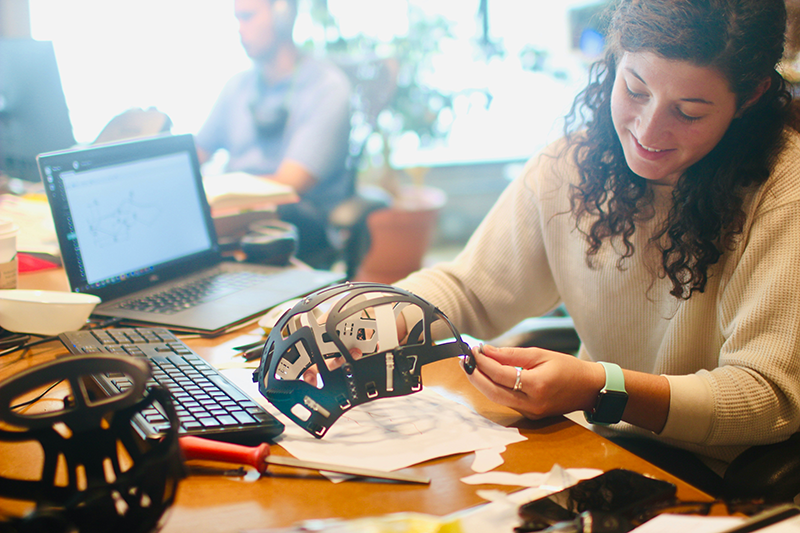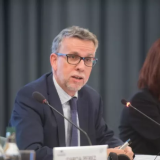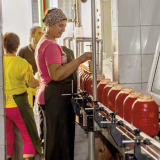
Darbo sąlygos ir tvarus darbas
Darbo sąlygos ir tvarus darbas yra tarp šešių pagrindinių 2021–2024 m. EUROFOUND darbo programos veiklų. EUROFOUND ir toliau vykdys veiklą kaip šios srities pokyčių stebėsenos ir analizės centras, įskaitant pokyčius, susijusius su dėl COVID-19 krizės kintančiomis darbo sąlygomis ir darbo kokybe, taip pat darbo organizavimu.
2021–2024 m. laikotarpiu EUROFOUND pateiks svarbias įžvalgas dėl iššūkių ir perspektyvų, susijusių su darbo sąlygomis ir tvariu darbu ES. Remdamasis savo ilgalaike patirtimi šioje srityje, EUROFOUND, atsižvelgdamas į esamas tendencijas ir vykstančią pažangą, nustatys atsiradusias problemas, susijusias su darbo sąlygomis ir darbo kokybe. Bus analizuojamos įvairios šalys, sektoriai, profesijos ir darbuotojų grupės tokiais aspektais kaip darbo organizavimas ir nuotolinis darbas, darbo laikas, pusiausvyra tarp darbo laiko ir asmeninio gyvenimo, lygybės principas, darbuotojų sveikata ir gerovė, gebėjimai ir mokymas, pajamos ir perspektyvos, pasitenkinimas darbu Daugiau dėmesio bus skiriama nestandartinėms užimtumo formoms, o ypač savarankiškai veiklai.
Atsižvelgiant į ES demografines senėjančios visuomenės problemas bei išaugusią darbo pobūdžio įvairovę, EUROFOUND ir toliau analizuos veiksnius, kurie leidžia darbuotojams ilgiau išlikti darbo rinkoje. Taip pat bus skiriama dėmesio darbo vietų kokybės gerinimui, nes tai paskatintų aktyvesnį dalyvavimą darbo rinkoje bei padidintų darbuotojų motyvaciją, prisidedant prie tvaraus darbo kūrimo visą gyvenimą.
Sąsajos tarp darbo ir sveikatos bus nagrinėjamos aktyviai konsultuojantis su Europos darbuotojų saugos ir sveikatos agentūra (EU-OSHA). EUROFOUND tikslas yra toliau tęsti bendradarbiavimą su Tarptautine darbo organizacija (TDO) dėl darbo ir darbo sąlygų ateityje pasauliniu lygmeniu.
- Infografikas: Darbo sąlygos ir tvarus darbas ES
„Iš esmės tai geros naujienos, nes darbo sąlygos Europos Sąjungoje gerėja (nors ir labai lėtai), tačiau susirūpinimą kelia tai, kad sąlygos gerėja ne visoms darbuotojų grupėms. Tai stipriai priklauso nuo to, kuriame sektoriuje dirbate, nuo įgyto išsilavinimo lygio ir, tiesą sakant, tai taip pat priklauso nuo to, ar esate vyras ar moteris.“
Barbara Gerstenberger, Profesinės veiklos skyriaus vadovė
































